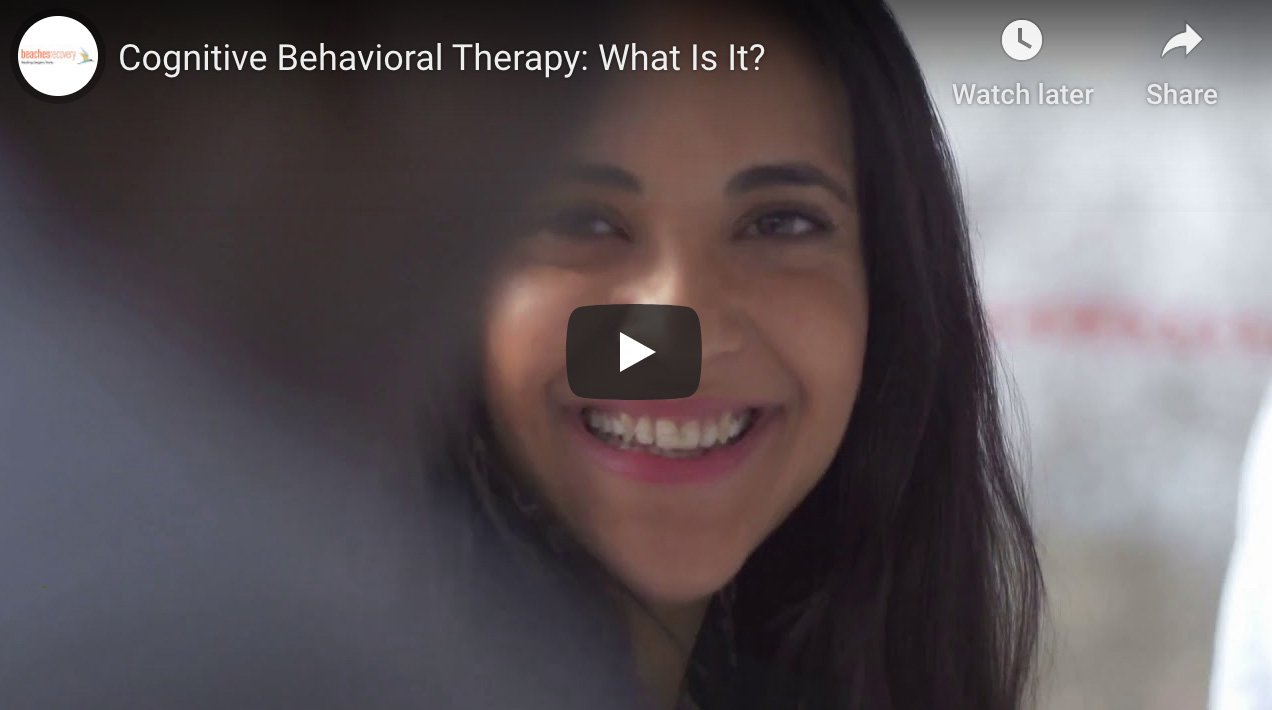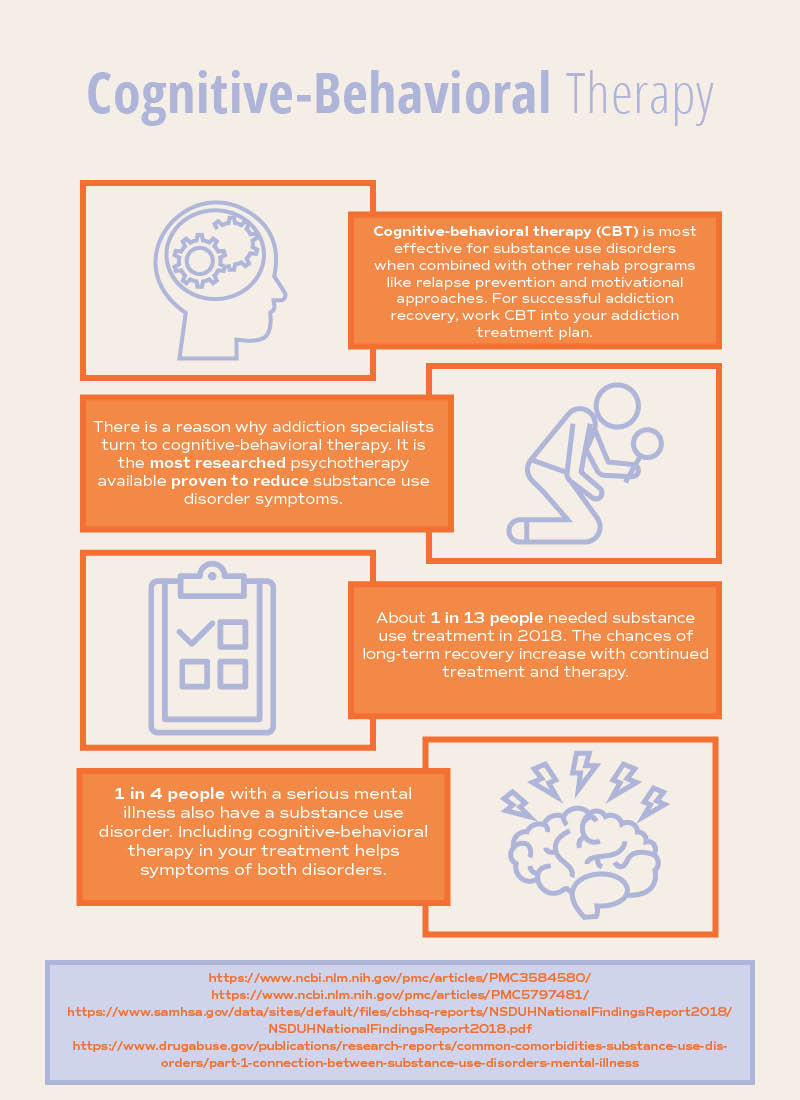What is Cognitive-Behavioral Therapy?
Photo by christopher lemercier Originally Posted On: https://www.beachesrecovery.com/addiction-treatment-center-programs-fl/addiction-therapy-services/cognitive-behavioral-therapy/Wednesday, April 8th 2020, 11:14 am
 Photo by christopher lemercier
Photo by christopher lemercier
Originally Posted On: https://www.beachesrecovery.com/addiction-treatment-center-programs-fl/addiction-therapy-services/cognitive-behavioral-therapy/
The best way to overcome addiction to drugs or alcohol is to address the root of the problem. Cognitive-behavioral therapy (often referred to as CBT) helps you identify the thoughts, emotions, and beliefs that lead to addictive behavior. Beaches Recovery offers cognitive-behavioral therapy in Florida.
Cognitive-behavioral therapy is an essential part of our addiction treatment program and helps you during the early stages of recovery. If you can identify your negative thoughts and feelings, then you are more equipped to manage the internal triggers that fuel your addiction. A Beaches Recovery therapist can guide you as you get one step closer to your recovery.

What is Cognitive-Behavioral Therapy?
Cognitive-behavioral therapy is an evidence-based treatment that focuses on the connection between your thoughts, feelings, and behaviors. If you constantly think negative thoughts or have intense emotions, you are more likely to develop negative or destructive behavioral patterns.
Instead of dealing with the painful past, cognitive-behavioral therapy deals with what is going on inside of you at the present moment. The goal is to recalibrate your thinking so that you replace negative thoughts with positive thoughts. Your therapist can help you learn skills that improve your overall quality of life, not just end your addiction.
The Elements of Cognitive-Behavioral Therapy in Addiction Treatment
Cognitive-behavioral therapy is an umbrella term for a wide range of professional techniques that we use to help you during therapy. All of these techniques share common characteristics such as:
Emotional Response
Behaviors are largely governed by thoughts and feelings – not by external circumstance situations. As such, we focus on the connection between your mental activity and your behaviors. How individuals perceive the context, the situation they are in leads to emotional responses. By identifying how an individual’s emotions arise, what those emotions are, and how or if they are situationally appropriate, patients learn more control of themselves.
Short-Term Therapy
The purpose of cognitive-behavioral therapy is to help you get to the next stage of your recovery. It is a short-term type of therapy that sets the tone for the remainder of rehab. Cognitive-behavioral therapy typically lasts 20 sessions or less. It is meant to give a solid foundation as patients move into more specific kinds of therapy and treatment to address their unique issues. However, as a broad tool, it frequently helps all patients across most therapies.
Relationship Oriented
During your sessions, you will form a positive relationship with your therapist. This is important as you build trust and work together to change your way of thinking. Cognitive-behavioral therapy is highly interactive and requires your participation. Unlike some forms of talk therapy, patients are expected to make decisions and then act upon those decisions. The patient and the therapist work together to figure out what the best plan of action is and how to implement it. Thus, patients can expect to have to be responsive and forthcoming as they develop trust and a working relationship with their therapist.
Inward-Focused
It is important to identify why you have an addiction to drugs or alcohol. Therefore, your therapist asks questions and uses strategies that help you understand why you do the things you do. The method is based on seeing things for the way they really are, instead of what we imagine them to be. Thus, while patients may believe they know why they do what they do, individuals must be open to learning more about themselves. By being honest with oneself, patients learn how to make an authentic, self-controlled decisions rather than allowing their substance use disorder to dictate to them.
Structured Therapy
Cognitive-behavioral therapy is a highly structured form of therapy. Your therapist has an agenda and a focus during each session. This gives you a way to measure your progress and prepare for each session. Therapists use evidence-based methods that teach you how to overcome your addiction.

Benefits of Cognitive-behavioral therapy
At Beaches Recovery, we use cognitive-behavioral therapy to treat a wide range of addiction and mental health disorders. Because cognitive-behavioral therapy is highly engaging, leads patients to be accountable for their actions and outcomes, and is centered on how thoughts and feels are responsible for our behaviors it is extremely effective in dealing with substance use disorder and several other mental health issues. Instead of focusing on past actions or re-evaluating passed decision, cognitive-behavioral therapy deals with where the patient is now and what actions they can take to improve their situation going forward. Setting realistic goals and developing personalized problem-solving techniques makes this individual therapy one of the more effective available. There are several benefits of cognitive-behavioral therapy including:
Structured, professional support
Cognitive-behavioral therapy is such a common therapeutic technique that like 12 Step programs it offers a wide range of support networks for individuals recovering from both substance abuse and mental health issues. Because it is a therapy requiring concrete action to be taken, individuals know there is always someone to turn to for help in times of crisis or celebration such as a counselor, therapist, or peer. Being part of a supportive community means benefiting from it and helping to build it up. This gives individuals the best chance at avoiding relapse and making their recovery a lasting one.
Improved self-esteem
It’s not uncommon for individuals struggling with substance use disorder to do so because of very low self-esteem. When individuals receive detox treatment, one of the ways addiction is overcome is by confronting the issues prompting turning to a substance in the first place. While low self-esteem doesn’t cause addiction, it can lead individuals towards abusing substances which in turn leads to dependency, that is, addiction. In cognitive-behavioral therapy, by focusing on problems and issues and working towards practical solutions, individuals are able to see themselves grow in mental, emotional, and physical strength. Gradually, their self-esteem improves giving them the motivation and the skills to overcome their substance use disorder and heal from their mental health issues.
Communication and emotional management
Since cognitive-behavioral therapy looks towards practical solutions, improving communication and controlling one’s emotions is a vital aspect of the therapy. Specifically, CBT helps patients learn to control and direct their emotions, like anger, into appropriate channels. At the same time, the therapy gives patients the tools to express their guilt, shame, pride, satisfaction, or dissatisfaction in a healthy way. By preventing the bottling up of emotions and the unhealthy escape into substance abuse, cognitive-behavioral therapy gives patients the language they need to communicate to others what they are experiencing. Also, it allows patients to practice and develop broadly positive communication skills improving their ordinary interactions as well.
Positive thinking
Cognitive-behavioral therapy promotes positive, realistic thinking that leads to healthy behavior. Negative thinking patterns can easily become habits that then dictate an individual’s actions. By focusing on identifying, challenging, and eliminating negative thinking, cognitive-behavioral therapy gives patients the skills to move towards positive, healthy actions. Further, patients learn how to keep this process going whenever negative thinking arises giving them the best chance for lasting recovery.
Improved coping skills and management
There is no escaping stress. However, it doesn’t need to dictate a person’s life. When recovering from substance abuse, stress can be a major trigger. Fortunately, cognitive-behavioral therapy teaches individuals how best to manage stress as well as grief and trauma, whether it’s past or occurring in the present.
Substance abuse and addiction relapse prevention
Relapse is not uncommon when dealing with substance use disorder or other mental health issues surrounding addiction (whether the addiction is to a substance or not, for example, gambling or sex addiction). It matters less that an individual relapsed–it happens–and matters more how they respond to the relapse. Cognitive-behavioral therapy provides patients with the tools they need to prevent relapse but when relapse occurs, these same tools can be used to get back on the right track. By learning how to identify their problems, patterns, and triggers, they can not only use their coping methods but turn to their support network without fear or shame.
Thus, by learning how to set realistic goals, patients become problem-solvers for their own issues. Once out of treatment, having this skill it vital in preventing relapse but also in recognizing triggers or dangerous situations whether they be emotional or physical. Cognitive-behavioral therapy is a means to better manage stress and anxiety, two ever-present conditions preventing them from growing into serious mental health disorders. All of this allows individuals to better enjoy and participate more fully in activities and social situations. Because they have learned how to identify and deal with triggers and challenges to their mental health, they needn’t be fearful of interacting with the world again.
Beaches recovery not only saved my life, but gave me a life beyond my wildest dreams. The loving and caring staff taught me the skills and tools necessary to continue sobriety after treatment as well as how to create the foundation for an amazing life. Not only do they care for you while in treatment, they provide a community to remain a part of after being a patient that is a huge part of my recovery today. I still keep in touch with the beaches community and I always will. I cannot thank Beaches enough for what they have done for me and so many others that have struggled and wanted a new life. If you want a life beyond your wildest dreams, Beaches Recovery is the place. Thank you and I love you for more reasons than I can say.
-Matt S.
Learn More About Cognitive-Behavioral Therapy at Beaches Recovery
Are you ready to take the next step in your recovery from alcohol or drug addiction? Beaches Recovery can help. We offer cognitive-behavioral therapy and other treatments for substance abuse and mental health disorders. To find out more about your treatment options, call us at 866.605.0532. We can answer your questions, discuss your treatment, and get you started today when you contact us.
Information contained on this page is provided by an independent third-party content provider. Frankly and this Site make no warranties or representations in connection therewith. If you are affiliated with this page and would like it removed please contact pressreleases@franklymedia.com
More Like This
April 8th, 2020
December 14th, 2024
December 14th, 2024
December 14th, 2024
Top Headlines
December 14th, 2024
December 14th, 2024
December 14th, 2024
December 14th, 2024






